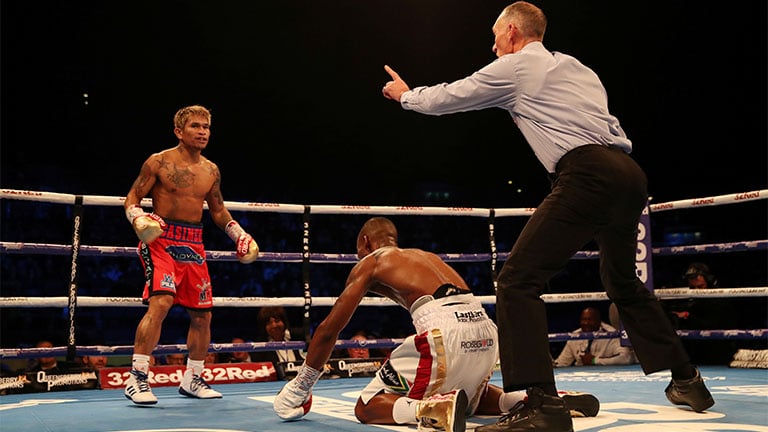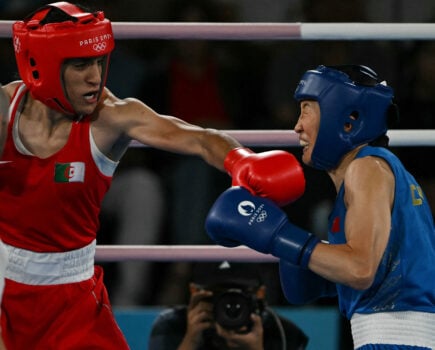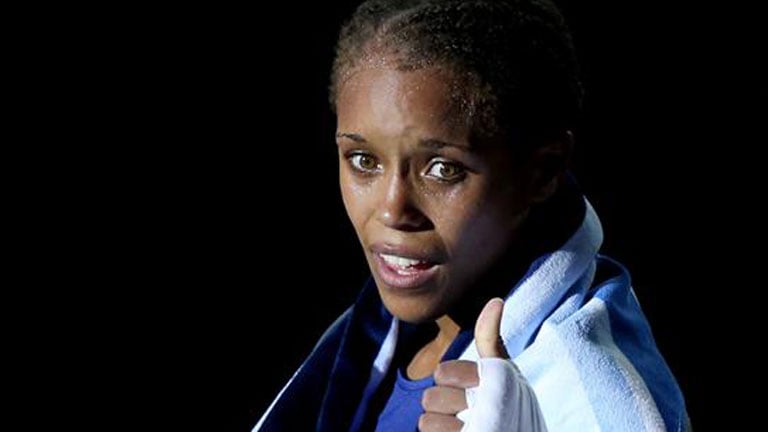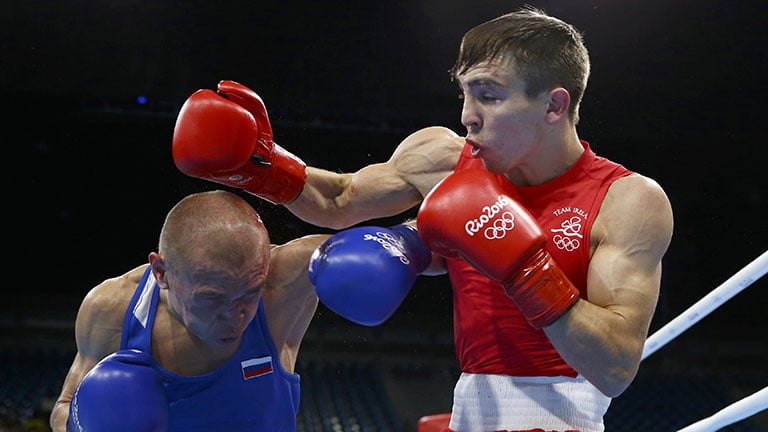TAKING honest testimony from boxers is not always a fun way to spend a day or night and standing lonely guard inside Zolani Tete’s dressing room at midnight last Saturday was always going to be tough.
When the sobbing had stopped, when the bulky and comforting arms of his team had released him, he stepped forward for one more embrace; Tete is a decent man and I have worked on a lot of his fights. “It’s boxing,” he told me. “No excuses, but I will be back.” There was a startling red rim to his eyes, which were both sad and wet with tears, and there was the undeniable sound of despair in his broken voice. We could all hear Sean Gibbons – the globe-trotting fight fixer – leading the celebrations for John Riel Casimero through the flimsy walls. “He [Casimero] had a great win tonight – I will have a great win next time.” That awful room was a tear-for-tear top three and you need a hot shower after you push for an interview like that.

A few days before the 330-minute live televised show from Birmingham, featuring Tete and three British title fights, a few hundred people gathered for history in Cannock at Bar Sport. The main attraction was England v Scotland but Scott Welch, a survivor of a world heavyweight title fight on the coldest night in Tennessee history, arrived in town with his wheelchair warriors. A man would box a woman.
Luiz Faye was a police officer for 10 years before a routine hip operation went wrong and she has never walked properly since. Chris Middleton was serving in Afghanistan when a blast took both of his legs. Do I need to say that he nearly died from his injuries? Anyway, he insists on being called Legless, the darkest of ring monikers. It seems they each needed something to ease the awful pain of their new life. They found wheelchair boxing – stick with me, it’s not the freak show you think.
The chairs were lifted over the ropes, the two boxers slithered in, headguards on, strapped in and then it was ding-ding for three 90-second rounds. There was skill and guile and effort. I have seen a lot of Paralympic sport and this was better than most of it. It really was. Faye told me the canvas was a bit soft and it had hurt her core, Legless was flying, hyped with the fight. The crowd had been converted, the dubious spectacle had silenced them. There was respect. The fighters told me of terrible black nights, suicide attempts and then boxing. Welch hovered, listening, nodding. “I have seen transformations I can’t believe with the wheelchair boxers,” he told me.
Welch works with Mauricio Sulamain’s WBC and the wheelchair initiative is part of the WBC Cares scheme. One day there might be whole tournaments of wheelchair boxing, shows on their own and not one-off ‘showcase bouts’. There is the start of a lobby for Olympic inclusion. It has more than a chance gaining some traction and should.
It was the sort of boxing night where a heavyweight from Birmingham called Delicious entered the ring to ABBA and Legless, up on his fancy gadget prosthetics, was in charge of the chorus. Not a freak show, but certainly odd – odd and inspirational. There was a potential line of the year from one of the junior boxers, a Scottish kid of about 15. I will not say his name, he won, was very impressive, but connected with two clear low blows. I mentioned the two when I spoke to him. “Aye, but only one was intentional.” It made me chuckle.
The next eight men for Ultimate Boxxer gathered at the end of last week, eyeing each other with a mixture of amusement and resentment. Their individual testimonies were often like an audition of the damned, the unlucky and the truly dangerous. Many had gone from child to man overnight, dad at 17, army at 16, drug and booze problems before they were 17, gun gangs, one had been detained in an orphanage in the Caribbean when his mother was arrested with a suitcase of cocaine, another had been a professional rugby league player at 16 and on the scrap heap at 19. It was a gruelling and gripping morning of bitter, angry and comical words. The heavyweights fight on Dec 13.
The final and most lasting testimony of the week was taken ringside at Bar Sport. It came just hours before the latest terror on London Bridge and took everybody in attendance back to the 7/7 attacks in 2005. I perched on the ring steps to speak with Dan Biddle, the most seriously injured survivor of that black morning’s carnage. Big Dan had boxed as an amateur and is back in a gym now, an advocate and part of Welch’s wheelchair boxing scheme.
“It can give you back some of the things you lost,” he said. Biddle was blasted from the tube that day, travelled across the brick tunnel’s roof to land back under the train. Legs, spleen and an eye were lost forever. He died three times, had his ribs cracked so that his heart could be massaged and spent eight weeks in a coma. He knows a little bit about loss. He’s back in the boxing business now.






